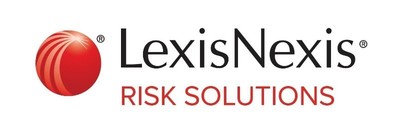LexisNexis Risk Solutions Cybercrime Report Reveals that the Mobile Share of Transactions in the LexisNexis Digital Identity Network Reached 75%, Leading to Spike in Digital Fraud
LexisNexis Risk Solutions has released its latest Cybercrime Report, highlighting a significant rise in mobile fraud, which now accounts for 75% of all transactions. The report analyzed 35.5 billion transactions in the second half of 2021, marking a 44% year-over-year increase. Scams surged in North America, noting 15.3 billion transactions tracked in the U.S. and Canada, up 22% year-over-year, with human-initiated attacks increasing by 50%. The report underscores the need for businesses to collaborate in combating fraud.
- Transaction volume increased by 44% year-over-year.
- Mobile transactions reached 75%, indicating a strong shift in digital behavior.
- Significant growth in the customer base within the Digital Identity Network.
- Human-initiated attacks rose by 50% year-over-year.
- Automated bot attacks increased by 32% globally, with the U.S. and Canada showing declining figures.
Human Initiated Attacks Increased for the First Time Since 2019
ATLANTA, March 24, 2022 /PRNewswire/ -- LexisNexis® Risk Solutions today released the results of its latest Cybercrime Report, an analysis of transaction data from the LexisNexis® Digital Identity Network® in the second half of 2021. The report shows a significant shift to mobile fraud over the last four years, with mobile traffic representing
The Cybercrime Report analyzed 35.5 billion transactions over the six-month period, up
Increasing consumer confidence leads to enhanced demand for a customer-centric digital world. Companies are prioritizing their digital customer experience strategies to retain and acquire new customers, which is advantageous for legitimate consumers but may lead to opportunities for fraudsters.
- Welcome to the Mobile age – Global accelerated digitalization and adoption of mobile applications fueled by the pandemic continued across a multitude of different demographics and geographies. The first Cybercrime Report published in 2014 indicated that the percentage of mobile traffic in the Digital Identity Network was a mere
25% . In the second half of 2021, the mobile transaction split reached75% for the first time. This shift was driven by a few factors: a predominance of mobile usage amongst younger generations; mobile app-only fintechs and the emerging market population moving straight to mobile and skipping desktop altogether; and the rapid decrease of service data and smart handset costs. - Scams on the Rise in North America – Cryptocurrency excitement together with pent-up consumer savings, relief checks and increased online shopping due to Omicron, fueled U.S. transaction growth while triggering a rise in scams. The Digital Identity Network tracked 15.3 billion transactions in the U.S. and Canada in the second half of 2021, up
22% YoY. There was also a significant rise in human-initiated attacks, with a growth of50% YoY based on 157 million attacks. - Automated Bot Attacks Continue to Rise; Human Initiated Attacks Rose for the First Time Since 2019 – Automated bot attacks grew
32% YoY globally, with LATAM showing the highest growth at455% . The U.S. and Canada has seen a7% YoY decrease with 692 million attacks. Human-initiated attacks rose for the first time since 2019. - The Life of a Prolific Fraudster – Just one fraudster can leave a large footprint. The Digital Identity Network observed one fraudulent digital identity that attacked 35 different organizations and had 580 events associated with it. These included: 100 attempted account/creations/credit card applicants/loan applications; 45 attempted ecommerce purchases; 12 attempted password resets; and seven attempted changes to account details. The ability for organizations to benefit from global shared intelligence enables them to identify and stop more attempted fraud in real-time as fraudsters continue to benefit from breached identity data and automated bot credentials testing.
"It is time to unite in the fight against cybercrime. In a truly global digital economy, borders are no longer boundaries for trade or cybercriminals. It is more apparent than ever that fraud goes beyond single industries or countries," said Stephen Topliss, vice president of fraud and identity strategy for LexisNexis Risk Solutions. "For businesses to succeed in the digital world, they need to collaborate in the fight against fraud. This can be achieved by utilizing the power of a global anonymized digital identity network and through the establishment of more focused digital consortiums among industry peers."
Download a copy of the LexisNexis Risk Solutions Cybercrime Report, July through December 2021.
LexisNexis® Risk Solutions harnesses the power of data and advanced analytics to provide insights that help businesses and governmental entities reduce risk and improve decisions to benefit people around the globe. We provide data and technology solutions for a wide range of industries including insurance, financial services, healthcare and government. Headquartered in metro Atlanta, Georgia, we have offices throughout the world and are part of RELX (LSE: REL/NYSE: RELX), a global provider of information-based analytics and decision tools for professional and business customers. For more information, please visit www.risk.lexisnexis.com and www.relx.com.
Media Contact:
Marcy Theobald
678.232.0948
marcy.theobald@lexisnexisrisk.com
![]() View original content to download multimedia:https://www.prnewswire.com/news-releases/lexisnexis-risk-solutions-cybercrime-report-reveals-that-the-mobile-share-of-transactions-in-the-lexisnexis-digital-identity-network-reached-75-leading-to-spike-in-digital-fraud-301509512.html
View original content to download multimedia:https://www.prnewswire.com/news-releases/lexisnexis-risk-solutions-cybercrime-report-reveals-that-the-mobile-share-of-transactions-in-the-lexisnexis-digital-identity-network-reached-75-leading-to-spike-in-digital-fraud-301509512.html
SOURCE LexisNexis Risk Solutions
FAQ
What were the key findings of the LexisNexis Cybercrime Report for the second half of 2021?
How much did mobile fraud increase according to the latest Cybercrime Report?
What is the impact of COVID-19 on online transactions in North America?
What trends were observed regarding human-initiated attacks?








